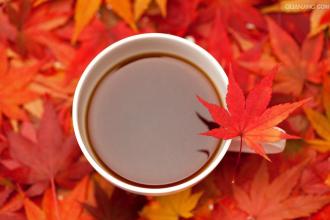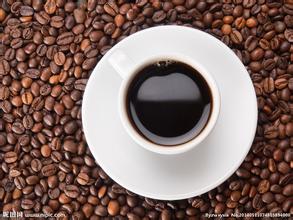Kenyan coffee plantations with fruit flavours Taste characteristics Boutique coffee Introduction
Kenya is divided into seven provinces (PROVINCE) and one provincial special district (Nairobi province). The following provinces are divided into districts (DISTRICT), townships (DIVISION) and villages (LOCATION). Under the new constitution, the four-tier administrative structure will be changed to the central and county (COUNTY) levels. The 47 counties established under the new constitution will be officially operational after the 2013 general election.
The seven provinces are: central Kenya (Central Province), Coastal Province (Coast Province), Eastern Kenya Province (Eastern Province), Nyanza Province (Nyanza Province), Rift Valley Province (Rift Valley Province), Western Kenya Province (Western Province) and North-East Kenya Province (North Eastern Province). [3]
Capital
Nairobi, with an area of 648 square kilometers, 1680 meters above sea level and a population of 3 million, is the political, economic, cultural, industrial and transportation center of the country. It has been designated as the capital since 1907 and is one of the international cities in Africa. The Kenyan flag is based on the flag of the African National Union of Kenya before independence.
Kenyan flag
Kenyan flag
And designed. It is rectangular, with a ratio of length to width of 3:2. From top to bottom, it is made up of three parallel horizontal rectangles of black, red and green, with a white edge above and below the red rectangle. The pattern in the middle of the flag is a shield and two crossed spears. Black symbolizes the Kenyan people, red symbolizes the struggle for freedom, green symbolizes agriculture and natural resources, white symbolizes unity and peace; spear and shield symbolizes the unity of the motherland and the struggle to defend freedom.
High-quality Kenyan coffee is aromatic, full-bodied and fruity, with a rich and perfect taste. Kenyan coffee has a wonderful fruit flavor, tastes like BlackBerry and grapefruit, and is a favorite of many coffee gluttons. This coffee has an excellent medium purity, crisp and refreshing taste. It has a fresh flavor and is most suitable for drinking iced coffee in summer. When tasting this coffee, if it is paired with sour fruits such as grapefruit, it will certainly give me the best coffee experience. "not much like coffee, but a bit like fruit tea" is the common feeling of many people about this kind of shallow roasted Kenyan coffee.
In addition to having obvious and charming fruit acidity, Kenyan coffee is mostly from small coffee farmers, planted in a variety of different environments, encounter different climate and rainfall every year, and bring a variety of distinct and unique personalities. Take the AAPlus grade "KenyaAA+Samburu" as an example, the Samburu in 2001 has a strong aroma of black plum, the acidity is not high, and the taste is strong. The newly harvested Samburu in the winter of 2002 presents a completely different flavor, mulberry and green plum, with a little Nanyang spice (Spicy) flavor, after drinking, the aftertaste has the sweetness of green tea, the acidity is slightly higher than the year before, the taste is still strong. The common Kenyan taste is not strong, but it has a bright fruit-like flavor, some spicy and some red wine. This is how Kenya makes coffee fans look forward to and surprise Kenyan coffee beans the Kenyan government takes the coffee industry very seriously, where it is illegal to cut down or destroy coffee trees. Kenyan coffee buyers are world-class high-quality coffee buyers, and no other country can grow, produce and sell coffee on a continuous basis like Kenya. All coffee beans are first acquired by the Kenya Coffee Commission (CoffeeBoardofKenya, CBK), where they are identified, graded, and then sold at weekly auctions, where they are no longer graded. The Kenya Coffee Commission only acts as an agent to collect coffee samples and distribute them to buyers so that they can determine the price and quality. The auction in Nairobi is for private exporters, and the Kenya Coffee Commission pays growers a price below the market price. The best coffee grade is bean berry coffee (PB), followed by AA++, AA+, AA, AB and so on. The fine coffee is shiny, delicious and slightly alcoholic. Auctions are also organized to meet the needs of dispatchers. This kind of auction usually has a small auction volume (3-6 tons each), with samples with the grower's logo for buyers to enjoy. After the auction, the exporters pack according to different flavors, different qualities and the quantity required by the blenders. This provides a great deal of flexibility for the dispatcher. Quality-conscious Germans and Nordic people are long-term buyers of Kenyan coffee.

Important Notice :
前街咖啡 FrontStreet Coffee has moved to new addredd:
FrontStreet Coffee Address: 315,Donghua East Road,GuangZhou
Tel:020 38364473
- Prev

Yerga Coffee Features Sun-baked Yerga Coffee
Yerga Sherphine itself is a small town with a population of about 20,000. The three neighboring small producing areas Wenago, Kochere and Gelena Abaya are also classified as Yerga Sherphine because the flavor of coffee produced is almost identical to Yerga Sherphine. Yergin is culturally and geographically similar to its neighbour Sidamo, but Yergin seems to be more popular.
- Next

Introduction to the Colombian Coffee Flavor Manor
President Washington named the D.C. Columbus in memory of Columbus's discovery of the New World. The new capital was not yet built, and Washington died in 1799. In honor of him, the federal government and Congress named the new capital Washington when it was completed the following year (1800). What is commonly referred to as the capital refers to the area occupied by federal government agencies; in the case of the District of Columbia, it refers to the area occupied by residents
Related
- Detailed explanation of Jadeite planting Land in Panamanian Jadeite Manor introduction to the grading system of Jadeite competitive bidding, Red bid, Green bid and Rose Summer
- Story of Coffee planting in Brenka region of Costa Rica Stonehenge Manor anaerobic heavy honey treatment of flavor mouth
- What's on the barrel of Blue Mountain Coffee beans?
- Can American coffee also pull flowers? How to use hot American style to pull out a good-looking pattern?
- Can you make a cold extract with coffee beans? What is the right proportion for cold-extracted coffee formula?
- Indonesian PWN Gold Mandrine Coffee Origin Features Flavor How to Chong? Mandolin coffee is American.
- A brief introduction to the flavor characteristics of Brazilian yellow bourbon coffee beans
- What is the effect of different water quality on the flavor of cold-extracted coffee? What kind of water is best for brewing coffee?
- Why do you think of Rose Summer whenever you mention Panamanian coffee?
- Introduction to the characteristics of authentic blue mountain coffee bean producing areas? What is the CIB Coffee Authority in Jamaica?

